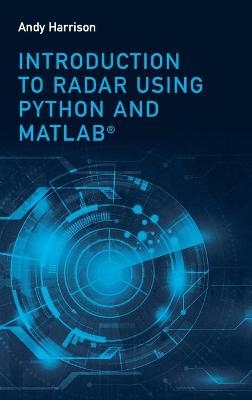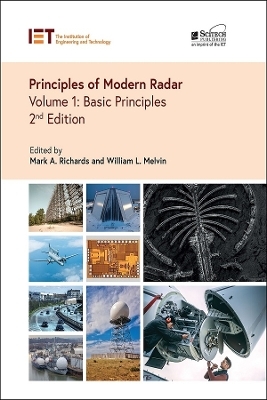
Introduction to Radar Using Python and MATLAB
Seiten
2019
|
Unabridged edition
Artech House Publishers (Verlag)
978-1-63081-597-4 (ISBN)
Artech House Publishers (Verlag)
978-1-63081-597-4 (ISBN)
"A well-constructed and concisely written book, incorporating a balanced combination of textual explanations and well-presented mathematical descriptions, which serves both as an introduction to many important aspects of radar but also as an extensive exercise in the usage and application of both the MATLAB and Python programming applications. It is eminently readable and understandable. I assess that it is probably most relevant to post graduate student scientists and engineers requiring a moderately detailed understanding of aspects of radar with a view to practical applications”
Aerospace Magazine
This comprehensive resource provides readers with the tools necessary to perform analysis of various waveforms for use in radar systems. It provides information about how to produce synthetic aperture (SAR) images by giving a tomographic formulation and implementation for SAR imaging. Tracking filter fundamentals, and each parameter associated with the filter and how each affects tracking performance are also presented. Various radar cross section measurement techniques are covered, along with waveform selection analysis through the study of the ambiguity function for each particular waveform from simple linear frequency modulation (LFM) waveforms to more complicated coded waveforms.
The text includes the Python tool suite, which allows the reader to analyze and predict radar performance for various scenarios and applications. Also provided are MATLAB® scripts corresponding to the Python tools. The software includes a user-friendly graphical user interface (GUI) that provides visualizations of the concepts being covered. Users have full access to both the Python and MATLAB source code to modify for their application. With examples using the tool suite are given at the end of each chapter, this text gives readers a clear understanding of how important target scattering is in areas of target detection, target tracking, pulse integration, and target discrimination.
Aerospace Magazine
This comprehensive resource provides readers with the tools necessary to perform analysis of various waveforms for use in radar systems. It provides information about how to produce synthetic aperture (SAR) images by giving a tomographic formulation and implementation for SAR imaging. Tracking filter fundamentals, and each parameter associated with the filter and how each affects tracking performance are also presented. Various radar cross section measurement techniques are covered, along with waveform selection analysis through the study of the ambiguity function for each particular waveform from simple linear frequency modulation (LFM) waveforms to more complicated coded waveforms.
The text includes the Python tool suite, which allows the reader to analyze and predict radar performance for various scenarios and applications. Also provided are MATLAB® scripts corresponding to the Python tools. The software includes a user-friendly graphical user interface (GUI) that provides visualizations of the concepts being covered. Users have full access to both the Python and MATLAB source code to modify for their application. With examples using the tool suite are given at the end of each chapter, this text gives readers a clear understanding of how important target scattering is in areas of target detection, target tracking, pulse integration, and target discrimination.
Introduction; Electromagnetic Fields and Waves; Antenna Systems; The Radar Range Equation; Radar Receivers; Target Detection; Radar Cross Section; Pulse Compression; Target Tracking; Tomographic Synthetic Aperture Radar; Countermeasures.
| Erscheinungsdatum | 16.11.2019 |
|---|---|
| Verlagsort | Norwood |
| Sprache | englisch |
| Maße | 152 x 229 mm |
| Themenwelt | Technik ► Nachrichtentechnik |
| ISBN-10 | 1-63081-597-7 / 1630815977 |
| ISBN-13 | 978-1-63081-597-4 / 9781630815974 |
| Zustand | Neuware |
| Haben Sie eine Frage zum Produkt? |
Mehr entdecken
aus dem Bereich
aus dem Bereich
Basic Principles
Buch | Hardcover (2023)
Institution of Engineering and Technology (Verlag)
149,60 €
Buch | Hardcover (2022)
Institution of Engineering and Technology (Verlag)
179,95 €
Buch | Hardcover (2022)
Institute of Physics Publishing (Verlag)
149,60 €


